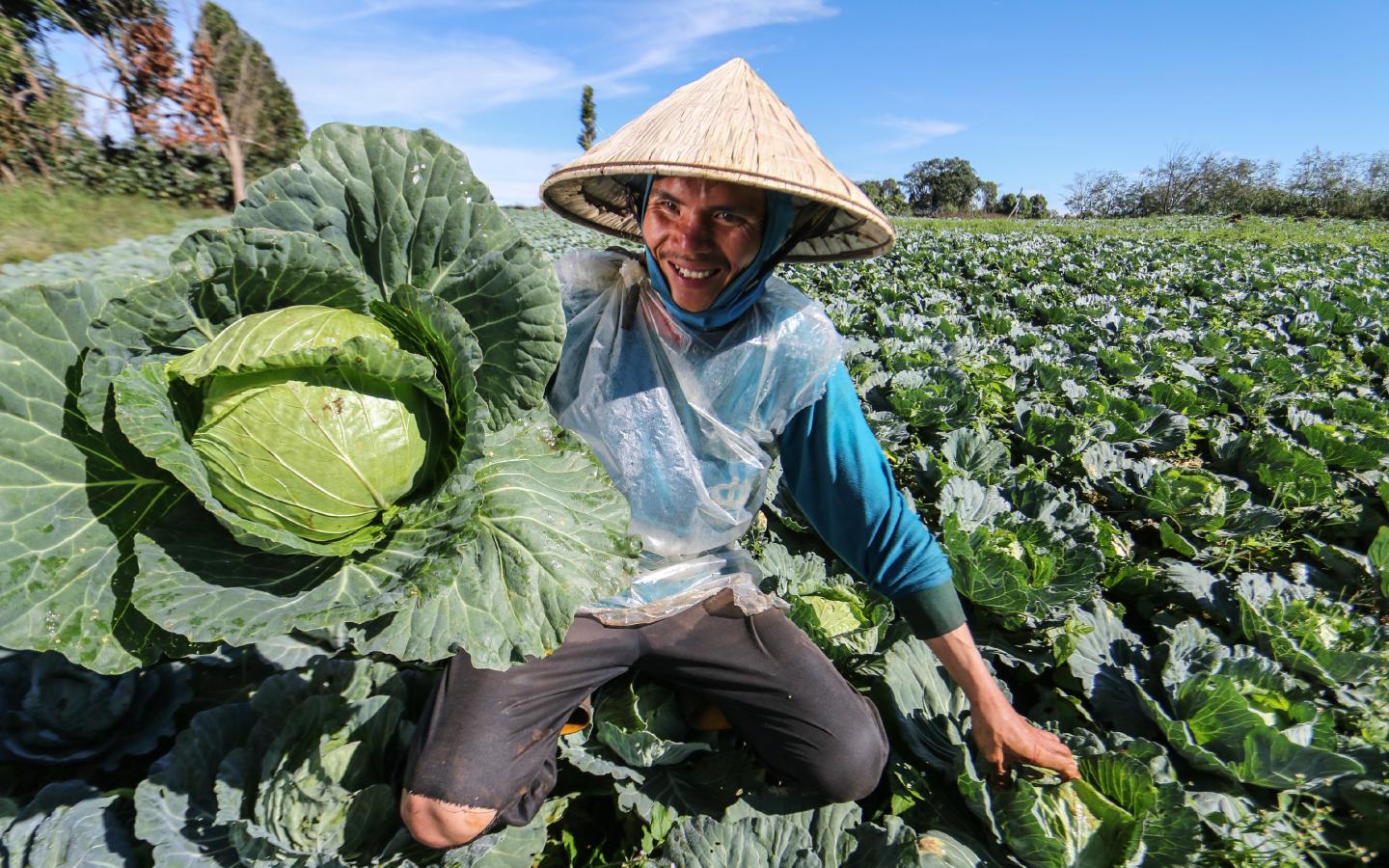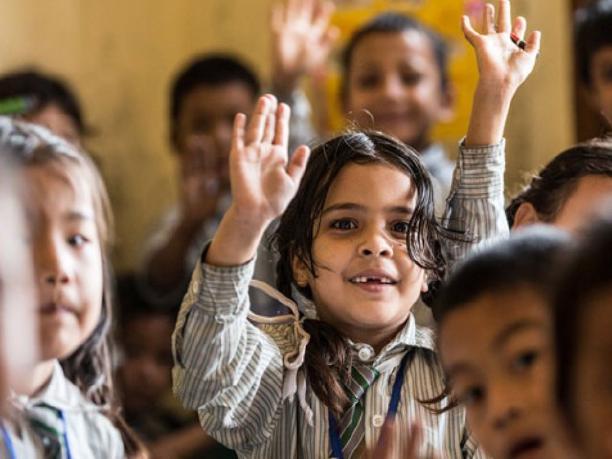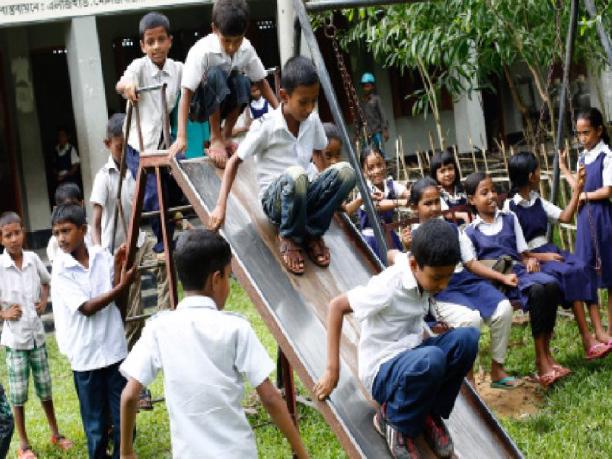United Nations
Listen to the article
Cumulative
- Project-Specific Cofinancing $882.9 million
2023
- Project-Specific Cofinancing $90 million*
The United Nations (UN) is an international organization founded in 1945, comprising 193 member states. It is committed to maintaining international peace and security; developing friendly relations among nations; and promoting social progress, better living standards, and human rights.
ADB has collaborated with UN agencies, funds, and other entities since 1970. ADB has standing memorandums of understanding (MOUs) with several UN entities, which include:
- International Fund for Agricultural Development (IFAD): ADB and IFAD signed a Cooperation Agreement in 1978 and an MOU in 2013. Both parties agreed to combine efforts to assist their respective regional members in development activities. They also signed a framework cofinancing agreement in 2014 to strengthen collaboration toward increased agricultural development and food security in select countries in the Asia and Pacific region by (i) scaling up pilots, (ii) collaborating on research and knowledge sharing, (iii) cofinancing identified projects, and (iv) streamlining regional and country operations, among other areas. In 2022, the agreement was extended until December 2023. IFAD has the highest sovereign cofinancing with ADB of all the UN entities, with a total of $761 million since 1979. IFAD is a specialized agency of the UN devoted to agriculture and rural development.
- UN Children’s Fund (UNICEF): ADB and UNICEF signed an MOU in October 2018 to promote children’s health and well-being in the Asia and Pacific region, collaborating in areas such as (i) health; (ii) water, sanitation, and hygiene; (iii) nutrition and food security; (iv) early childhood development; (v) education and skills, (vi) child protection, (vii) social protection, (viii) climate change and resilience, (ix) and infrastructure. UNICEF works to save children’s lives, defend their rights, and help them fulfill their potential from early childhood through adolescence.
- UN Development Programme (UNDP): ADB and UNDP signed an MOU in April 2019 to advance efforts to support progress toward the Sustainable Development Goals in Asia and the Pacific. It covers joint knowledge creation, exchange and dialogue, direct technical assistance, and project development and implementation. UNDP is the UN’s development agency that helps eradicate poverty, reduce inequalities, and build resilience so countries can sustain progress.
- Economic and Social Commission for Asia and the Pacific (ESCAP): ADB and ESCAP signed an MOU in April 2015, which was extended in March 2021 to last until December 2025. Through the MOU, both organizations aim to achieve internationally agreed development goals, including the 2000 Agenda for Sustainable Development, and to support poverty reduction and sustainable development through improved coordination and connectivity at the regional and subregional levels. ESCAP promotes cooperation among its members toward solving sustainable development challenges.
- UN Entity for Gender Equality and the Empowerment of Women (UN Women): ADB and UN Women signed an MOU in 2022 to (i) strengthen gender data and statistics to track and monitor the Sustainable Development Goals (SDGs), including SDG5; (ii) promote gender-responsive governance tools to enhance accountability and resources on gender equality; (iii) support women’s entrepreneurship and gender-responsive value chains; (iv) tackle gender-based violence; and (v) advance knowledge, evidence, and tools on gender and climate change. UN Women delivers programs, policies, and standards that uphold women’s human rights and ensure every woman and girl can reach their full potential.
- World Health Organization (WHO): ADB and WHO signed an MOU in 2018 to explore effective collaboration to (i) support Universal Health Coverage, (ii) strengthen health security, (iii) improve urban health, (iv) support responsive older care interventions, and (v) address the health impacts of climate change. WHO’s objective is to help everyone attain the highest possible level of health. It directs and coordinates authority on international health within the UN system.
Other UN entities that work with ADB include:
- Food and Agriculture Organization of the UN
- International Labour Organization
- Joint UN Programme on HIV/AIDS
- UN Educational, Scientific and Cultural Organization
- UN Environment Programme
- UN High Commissioner for Refugees
- World Food Programme (WFP)
Highlights
Sovereign Cofinancing. In 2023, $90 million in cofinancing was committed by the International Fund for Agricultural Development and the WFP, all for five technical assistance (TA) and investment projects in the agriculture, natural resources, and rural development sector.
IFAD supported a TA project to enhance the use of technologies in agriculture in Pakistan, Bangladesh, Tajikistan, and Viet Nam; and two investment projects to help Bangladesh increase climate- and disaster-resilient agricultural productivity, and Indonesia to optimize agriculture in dry land. The WFP supported two investment projects—one to help Nepal develop climate-resilient fruit and nut orchards, and another in the Lao PDR to address issues of productive rural infrastructure and watershed management in mountainous provinces.
Knowledge. In January 2023, applications opened for aspiring Indonesian small and medium-sized enterprises and startups within the country’s blue sector to boost their skills and expertise through the Blue Finance Accelerator (BFA) scheme. The BFA is a joint initiative by the UN Development Programme (UNDP) and ADB in collaboration with the Coordinating Ministry of Maritime and Investment Affairs and Instellar Indonesia. In August 2023, the BFA Demo Day took place to mark the final stage of the program. It provided a platform for the chosen 12 companies to access enhanced opportunities for investment or financing to scale their solutions for the blue economy. It also enabled collaboration opportunities between the companies and relevant stakeholders, especially government officials for public–private partnerships.
In March 2023, at the Asia-Pacific Forum for Sustainable Development, ADB Managing Director Woochong Um expressed his appreciation to the Economic and Social Commission for Asia and the Pacific and UNDP on the launch of the 2023 Sustainable Development Goals Partnership Report. The report addresses the confluence of crises involving the finance, food, and energy sectors. It serves as a call to action to understand better the interconnectedness of the energy, food, and finance systems and to create opportunities for innovative solutions for a more sustainable, inclusive, and resilient future.
During the UN 2023 Water Conference in New York in March 2023, ADB led a virtual event on “Building Post-Flood Resilience in Pakistan through Integrated Flood Risk Management.” The session featured ongoing developments toward integrated approaches to flood risk management in Pakistan post-2022 floods, incorporating structural and nonstructural measures. Presentations and Q&A featured a range of stakeholders overseeing, implementing, and supporting actions toward integrated flood risk management in Pakistan. Representatives from Deltares and the Japan International Cooperation Agency highlighted approaches and opportunities for flood risk management with examples from the Netherlands and Japan.
In May 2023, at the panel session on financing sustainable forest management at the 18th UN Forum on Forests, ADB highlighted the importance of investment in forests in addressing the climate–food–nature nexus. They discussed the need to leverage accounting tools to quantify the ecosystem service value, stressed the importance of payments for ecosystem services to incentivize change in farmers’ behavior, and shared ADB’s innovative natural capital financing facilities in translating ecosystem services into sustainable financing for ecosystems, including forests.
The 28th Conference of the Parties of the UN Framework Convention on Climate Change (COP 28) was held in Dubai from 30 November to 12 December 2023. ADB organized several side events showcasing initiatives on climate adaptation and resilience that it is implementing with other development partners.
At the Regional Road Safety Seminar held in December 2023, ADB highlighted its commitment to road safety to over 200 road safety and transport policymakers and practitioners from partner organizations, developing member countries (DMCs), and nongovernment organizations. The development partners renewed their commitments to support the DMCs in implementing evidence-based responses to road crash deaths and injuries. The UN Economic and Social Commission for Asia and the Pacific, UN Children’s Fund, and the World Health Organization are among the contributors and speakers in the seminar.
* The amount comprises $83 million from the International Fund for Agricultural Development and $7 million from the World Food Programme.



